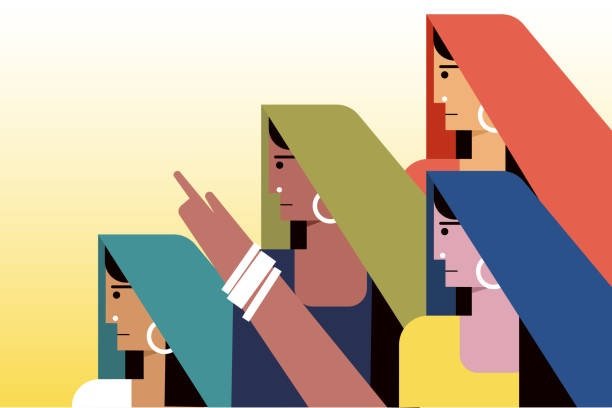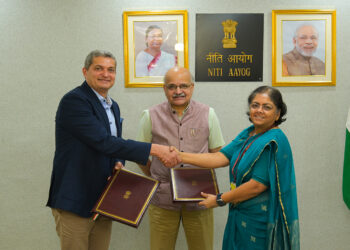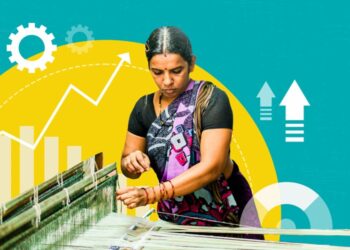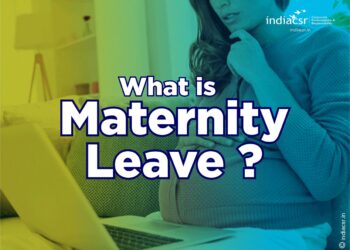NEW DELHI (India CSR): This World Health Day the WHO’s theme was ‘Healthy Beginnings, Hopeful Futures’. While this may be true for many health problems that specially women today face, it is particularly fitting for the glaring issue of low haemoglobin and iron among even very young girls in India.
Anemia Epidemic Reality
Anemia is in fact one of the most significantly challenging health problems in India. According to the National Family Health Survey (NFHS 5), 57% of women aged 15-49 fall into the category of anemia which is a great deal of the population, and the result is a growing percentage of those with the health condition. Despite affecting millions of women and girls across India, anemia remains a silent epidemic that limits their ability to learn, work, and thrive.
Personal Struggles Surface
At just 17, Kalabati Kulishika from Rebatiguda village was experiencing severe anemia. Heavy menstrual bleeding drained her energy, leaving her unable to attend school regularly. Without proper knowledge of nutrition and hygiene, she became withdrawn and hesitant to engage with her peers. Her dreams of completing her education felt distant.
Widespread Health Challenge
Her story is not unique. Across India, thousands of girls face the same struggle, often unaware that anemia is the underlying cause of their fatigue and health issues. According to NFHS 5, 57% of women aged 15 to 49 in India are anemic, with adolescent girls among the most affected. Anemia is more than just a health issue; it is a silent barrier limiting their ability to learn and thrive.
Government Efforts Continue
Government programs like Anemia Mukt Bharat (AMB) have taken significant steps in this regard. In remote areas, it is time for the organisations working in healthcare to lend a hand to complement these efforts, with special attention to lack of awareness, stigma around menstruation, and limited healthcare access make anemia.
Mobile Units Help
Initiatives like Kanya Express are addressing this by ensuring that healthcare reaches those who need it most. Launched in 2021 by the Bansidhar & Ila Panda Foundation (BIPF), Kanya Express is a mobile health unit dedicated to reaching adolescent girls in underserved villages. Since its inception, Kanya Express has transformed the lives of 15000+ adolescent girls in Odisha in districts like Jajpur, Cuttack and Rayagada and is steadily expanding its operations across the state to cover more villages.
Support Changes Lives
Kalabati’s life began to change when she joined the Balika Mandal (Girls Group) in her village. With regular health checkups and the right guidance, her health improved, and she regained her confidence. Today, she is not only back in school but also actively encourages other girls to take charge of their health.
More Girls Recover
In another village, 15 year old Rakshi Mallik was struggling with a similar crisis. Coming from a tribal family, healthcare was scarce, and the persistent weakness from anemia kept her bedridden. Her haemoglobin levels had dropped to a dangerously low 7.2%, and excessive menstrual bleeding left her even weaker. When a Kanya Express team visited her school in 2023, they identified her condition and started counseling her on proper nutrition and menstrual hygiene. With iron supplements, dietary guidance, and ongoing support, her haemoglobin levels improved to 11.2 g/dL. Despite minor setbacks, including a brief illness that slowed her progress, she remained on the path to recovery.
Inspiration Through Resilience
Now, she is back in school, determined to continue her education and shape her future. Usha Rani Mallik from Bairimal Village, Sambari Hembram from Ampolaba Village, Rasmita Sahoo from Abhayapur Village, Manasi Pradhan from Kansha Village, and Sarojini Dehuri from Kendudhip Village have also overcome similar battles, with their stories reflecting a shared journey of reducing anemia cases.
Community-Based Solutions
Going beyond providing healthcare, initiatives like Kanya Express empower entire communities by creating awareness, improving access to essential resources, and integrating nutrition education and health screenings to encourage a culture of proactive health management. Before Kanya Express began, in inaccessible and difficult areas where we are working, 80% of the girls required attention towards iron deficiency. After its intervention, most of these girls came up trumps, with only 20% falling in the moderate to low anemia category. Many beneficiaries are also linked to government run programs, allowing them to receive continued support.
With sustained intervention, India can break the cycle of anemia, enabling a new generation of strong, independent women.
(India CSR)






















